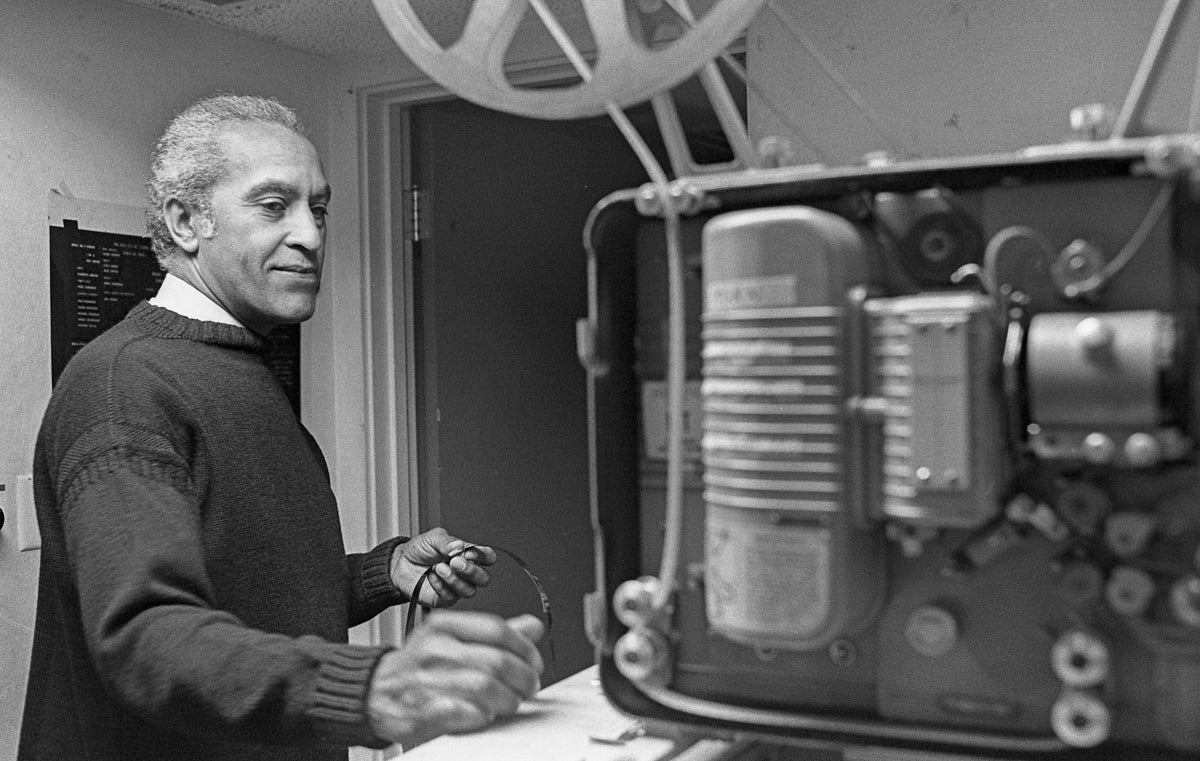Ronald Alexander, professor emeritus of communication, died May 7 at Stanford Hospital. He was 94 years old.
Alexander taught documentary filmmaking for 18 years in the graduate program of the Department of Communication. Alexander, who was named emeritus when he retired in 1988, was a beloved mentor to hundreds of students, many of whom remained in close contact with him over the years.
“Ron was a true gentleman whose strong principles and dedication were the armature of a life well lived,” said Kristine Samuelson, professor emerita of art and art history.
Inspiring excellence at Stanford
In 1970, Alexander was invited to Stanford for a six-month stay as a visiting lecturer in the Department of Communication. He was soon offered a permanent position – despite not having a college degree – and dedicated himself to the emerging Documentary Film and Television Program.
“I was quite delighted that Stanford could accept my years of experience in lieu of advanced degrees,” said Alexander in a 1988 profile in the Peninsula Times Tribune. “They have given me the freedom to be what I am, rather than something I am not.”

Before joining the Stanford faculty, Ronald Alexander had a prolific and distinguished career working as a re-recording sound mixer at the National Film Board of Canada. (Image credit: Jose Mercado)
As a teacher, Alexander had firm ideas of what skills he wanted his students to develop.
“A painstaking attention to detail is the main thing I try to impart,” he told the Times Tribune. “This is the only way student filmmakers will become excellent.”
Former student Tina DiFeliciantonio, AM ’87, whose films have won awards at international festivals at Sundance, San Francisco and Chicago, among others, vividly recalls Alexander’s kind but unrelenting teaching style.
In one instance, they were in the mixing room evaluating the sound design on her latest film. When the film concluded, Alexander, who frequently wore a baseball cap embroidered with the phrase, “Excellence, not perfection,” rewound the reels and replayed a specific scene. He then looked at DiFeliciantonio and asked, “So tell me, just what were you thinking?”
“I rambled. He listened. I couldn’t tell what he was thinking,” DiFeliciantonio recalled. “I stammered, ‘Well, I guess I wasn’t thinking.’ He chuckled warmly, even appreciatively, in his Ron Alexander way. I never made the same mistake again.
“Ron had high standards. He didn’t accept excuses and challenged each of us to be a force of nature. He was thoughtful, patient and he had a great sense of humor. When someone made him laugh, it was well earned.”
A professional and innovator
Before joining the Stanford faculty, Alexander had a prolific and distinguished career working as a re-recording sound mixer at the National Film Board of Canada. He is listed in credits on almost 300 films.
His start in film began in a most improbable way. While working as a sleeping car porter on the Canadian Pacific Railway in his mid-20s, Alexander met the wife of the commissioner of the National Film Board of Canada. Impressed with Alexander, she introduced him to her husband, who recommended Alexander for a job in the organization’s technical research department in Ottawa. From there his career at the NFB blossomed, most notably in the field of sound mixing, where he received multiple industry awards.
Alexander was also a creative and unrelenting problem solver and inventor. He developed and patented a revolutionary soundtrack-mixing device known as CUE VUE, which was installed in studios all over the world and remains in use today.
Early years
Alexander was born March 28, 1923, in Raleigh Township, Kent County (now Chatham-Kent), Ontario. He was an active, inventive child with a love of music and considerable talent as a pianist, according to his family.
In 1942, Alexander enlisted in the Canadian Army. After completing basic training, he transferred to the Royal Canadian Air Force. He later enrolled in an electronics and communication course at the University of Western Ontario, beginning a love affair with film that would span more than a half-century.
Alexander is survived by his daughter, Gina, and his sons, Paul and Dohn. A memorial service will be held at 4 p.m. Thursday, July 20, at Stanford Memorial Church. In lieu of flowers, those wishing to make a donation in Alexander’s memory can do so at the Buxton National Museum or a charity of their choice.